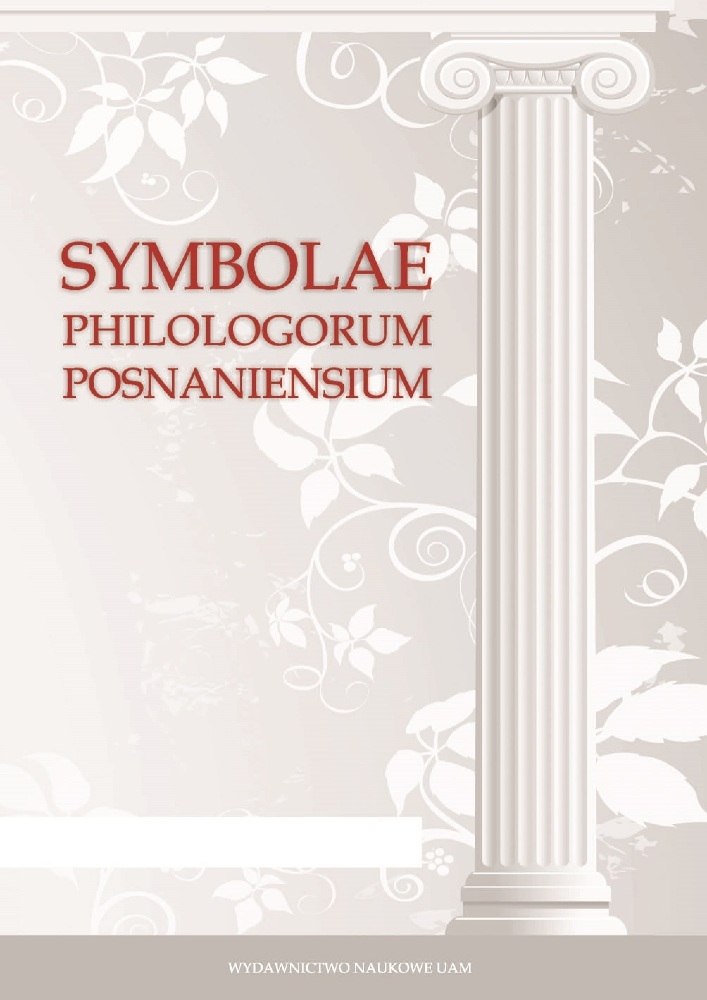Abstract
The article addresses the question whether it is a proper opinion to consider Isocrates a sophist as many commentators claim. In his analysis the author refers to the passages in which the rhetor expresses his negative judgments about the opinions and actions performed by the sophists. The author examines also the circumstances in which Isocrates defends the members of this movement, as he finds it a beneficial way to protect also himself from many false and malicious statements. In conclusion, Isocrates is considered to have a unique status as a sophist and to be a philosopher who aspires to the role of the spiritual leader of the Greeks of that time.References
Bendler 2010: G. Bendler, Das Bild der Perser bei Isokrates, historia.scribere 2 (2010), 141–184, https://webapp.uibk.ac.at/ojs/index.php/historiascribere/.../45.
Doug Al-Maini 2008: Doug Al-Maini, Isocrates, w: The Sophists: An Introduction, red. P.O’Grady, Bloomsburiae MMVIII, 129–138.
Eucken 1983: Ch. Eucken, Isokrates. Seine Positionen in der Auseinandersetzung mit den zeitgenössischen Philosophen, Berolini MCMLXXXIII.
Harding 1974: P. Harding, The Purpose of Isokrates’ «Archidamos» and «On The Peace», „California Studies in Classical Antiquity”, vol. 6, MCMLXXIV, 137–149.
Haskins 2004: E. Haskins, Logos and Power in Sophistical and Isocratean Rhetoric, w: Isocrates and Civic Education, red.T. Poulakos i D. Depew, Austini MMIV, 84–103.
Morrison 1958: J.S. Morisson, The Origins of Plato’s Philosopher-Statesman, „The Classical Quarterly”, Nova Series, vol. 8, [MCMLVIII], 198–218.
Poulakos 2004: J. Poulakos, Rhetoric and Civic Education: From the Sophists to Isocrates, w: Isocrates and Civic Education, v.s., 69–84.
Ślezińska 2013: A. Ślezińska, Dwie drogi starożytnej paidei, „Konteksty Kultury” 10 (2013), fasc. 1–2, 227–239.
Tell 2011: M. Tell, Plato’s Counterfeit Sophists, Cantabrigiae in re publica Massachusettensi MMXI.
Wesoły 2017: M. Wesoły, Skąd się wzięła retoryka? Perspektywa Arystotelesa, w: Retoryka klasyczna i retoryka współczesna. Pola i perspektywy badań, red. C. Mielczarski, Varsoviae MMXVII, 13–49.
Yun Lee Too 2008: Yun Lee Too, A Commentary on Isocrates’ Antidosis, Novi Eboraci MMVIII.
Yun Lee Too 2009: Yun Lee Too, The Rhetoric of Identity in Isocrates: Text, Power, Pedagogy, Cantabrigiae – MMIX [ed. prior MCMLCCCCV].
License
